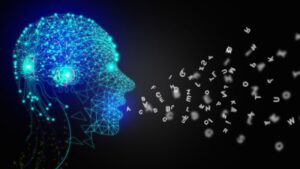Author Uncovers AI-Generated Counterfeit Books Bearing Her Name on Amazon
Table of Contents
An author has made a shocking discovery: a number of fake books have been sold under her name on the online retailer Amazon.
Artificial intelligence (AI) was used to create these fake literary works, leading some to question the veracity of information for sale on the internet.
Fake Books Produced by an AI
This finding illuminates a concerning phenomenon: the use of artificial intelligence-generated material in the fabrication of fake books and other works of art.
In one example, the writer discovered a library of works attributed to her, but which were actually written by AI programmes.
This begs the question of whether or not technology may be used to mislead customers and water down the value of genuine creative endeavours.
Threat to the Authenticity of Content
This instance exemplifies a larger problem with content integrity in the digital era.
The increasing sophistication of AI has led to a blurring of the lines between real and artificially created material, creating difficulties for both audiences and producers.
Because AI can copy human-made information so easily, strict precautions are needed to protect the veracity and originality of works of art.

Consequences for the Artistic Professions
The widespread use of artificial intelligence to produce fake material has serious consequences for the publishing, recording, and visual arts sectors, among others.
The proliferation of this type of material not only endangers the careers of legitimate authors but also damages customers’ faith in the veracity of online goods and services.
Platforms and regulatory organisations should heed this tragedy as a call to action to address this rising threat.
Verification’s Crucial Role
This event emphasises the need for reliable verification systems in online markets.
There is a growing need to establish rigorous techniques to confirm the originality of creative works as the prevalence of AI-generated material grows.
Among these are improved methods of validation that can tell the difference between authentic human-authored material and AI-generated copies.
Towards an Ethical Use of AI
This discovery highlights the urgency of deploying technologies with integrity and caution.
The wrong use of AI, despite its promising future, might have negative effects.
To safeguard both creators and consumers, it is essential to find a middle ground between taking use of AI’s potential and keeping it from being abused.
Working Together to Find Answers
Technology firms, content providers, platforms, and regulatory bodies must all work together to solve the problem of AI-generated fake content.
This event should act as a catalyst for all relevant parties to join together and develop coordinated plans to stem the tide of fake news and protect the integrity of creative works.
Protecting Artistic Freedom
Ultimately, the finding of AI-generated fake books highlights the need of protecting the authenticity of creative expression in the digital age.
The creative industries may strive towards a future where real creative efforts are honoured and safeguarded from the shadow of AI-generated counterfeits by establishing rigorous verification methods, encouraging ethical AI practises, and fostering collaboration among stakeholders.